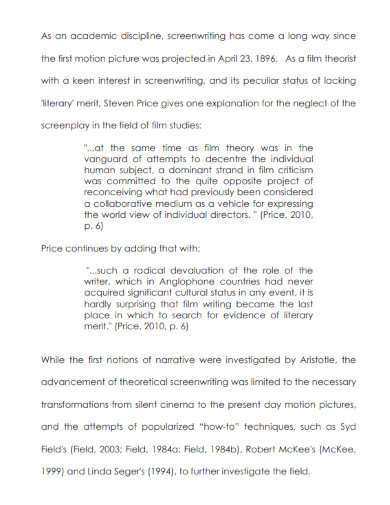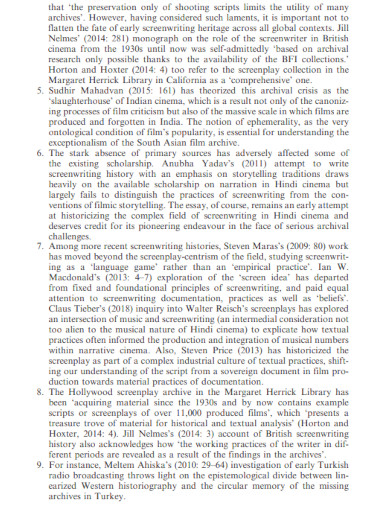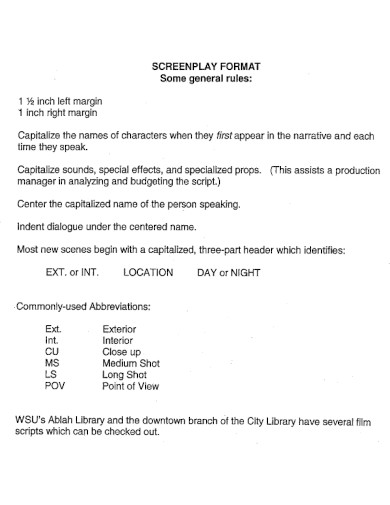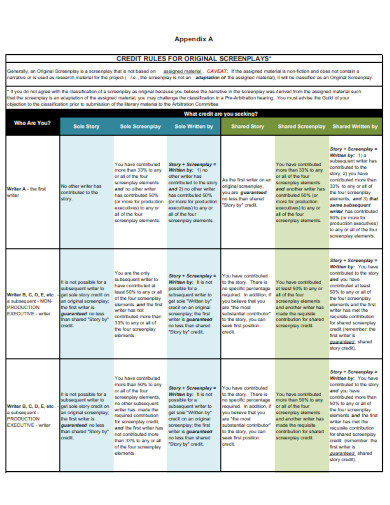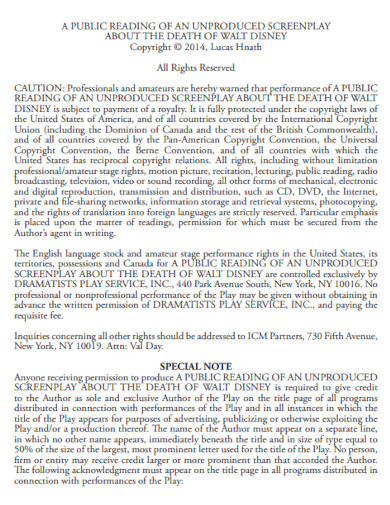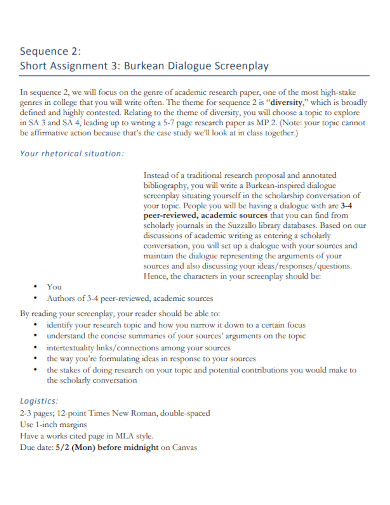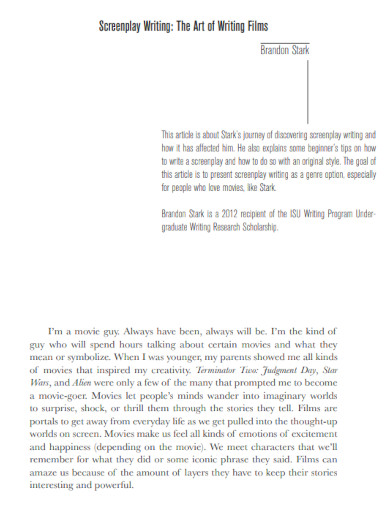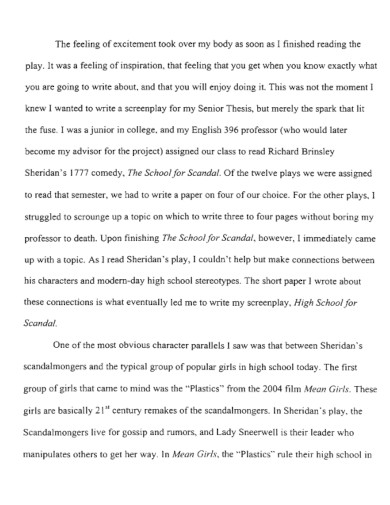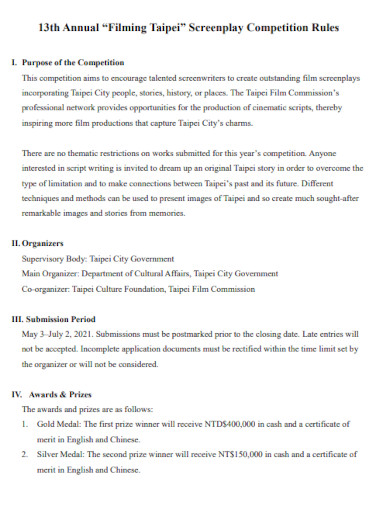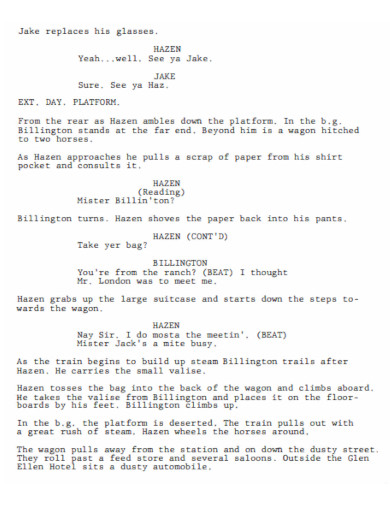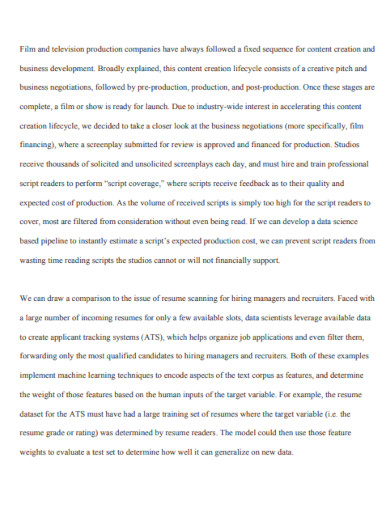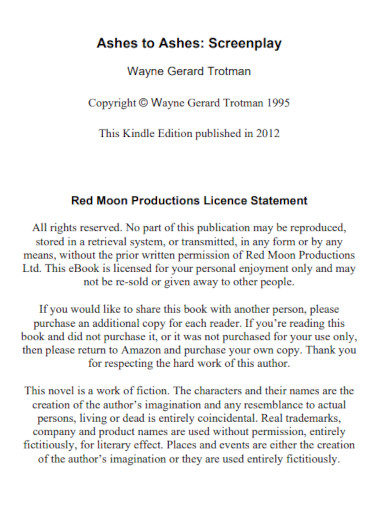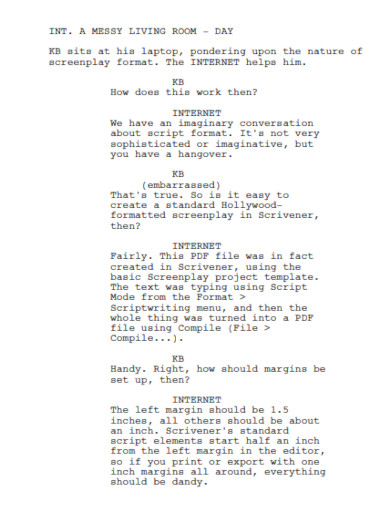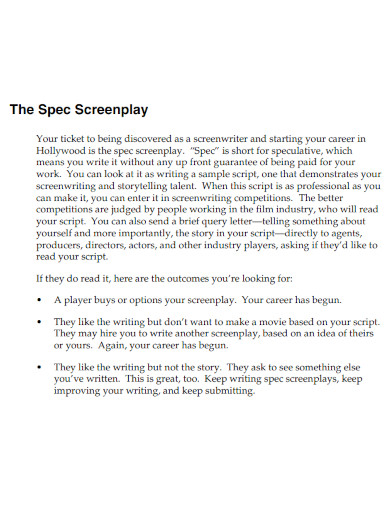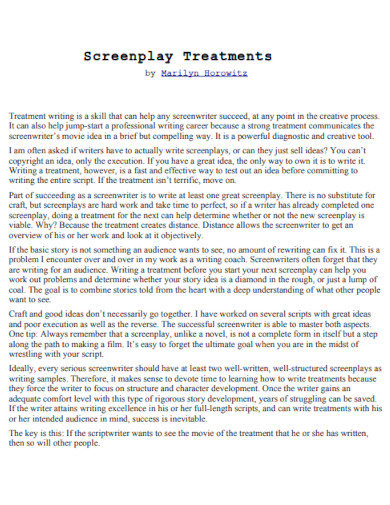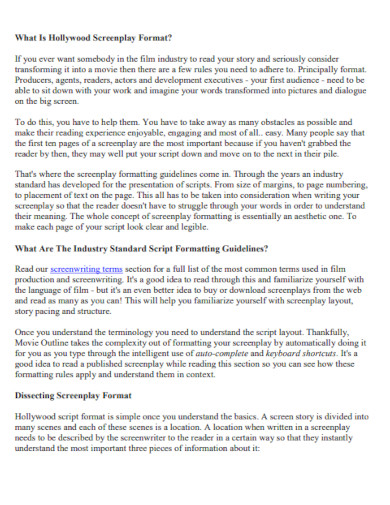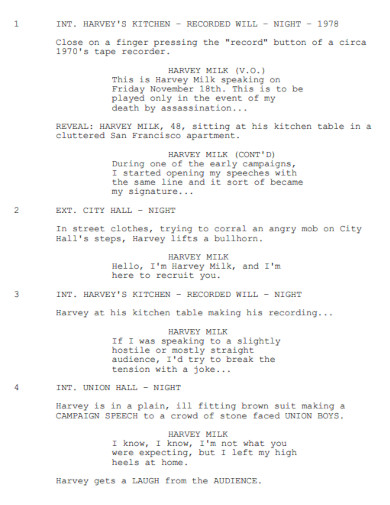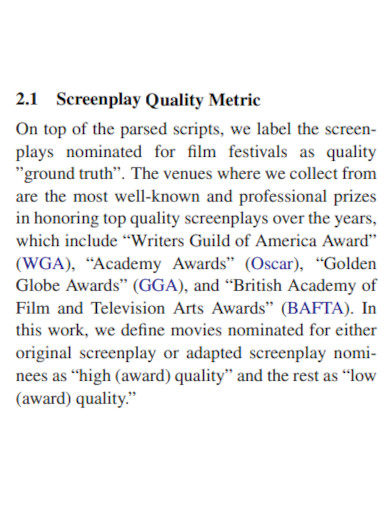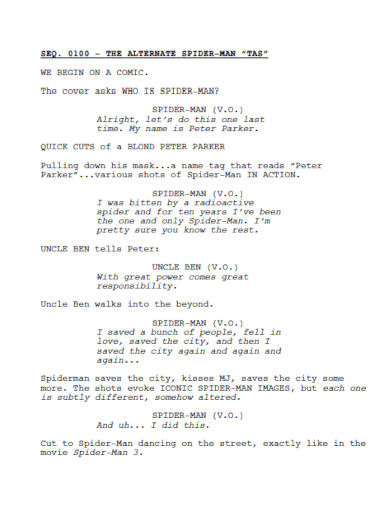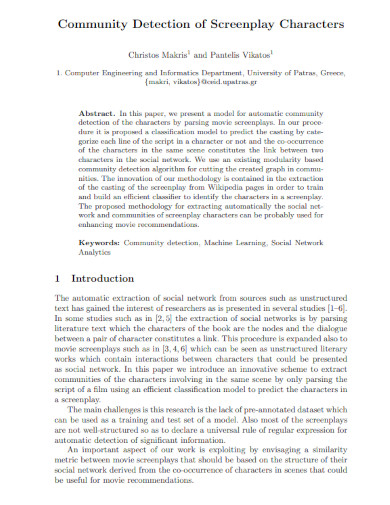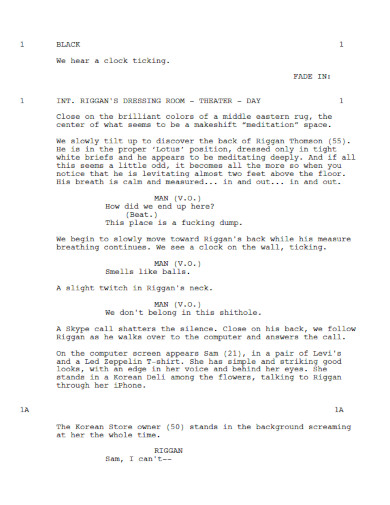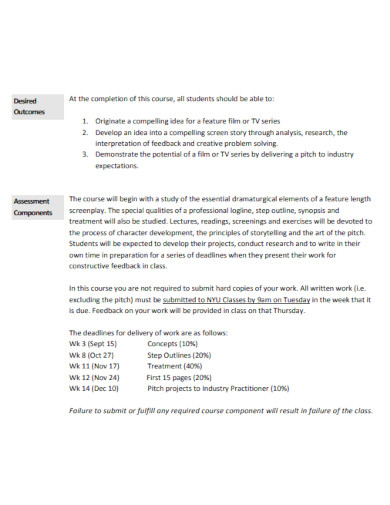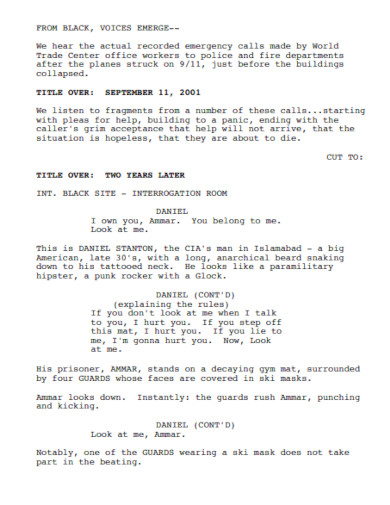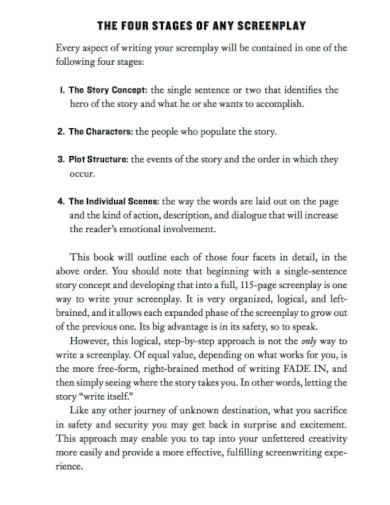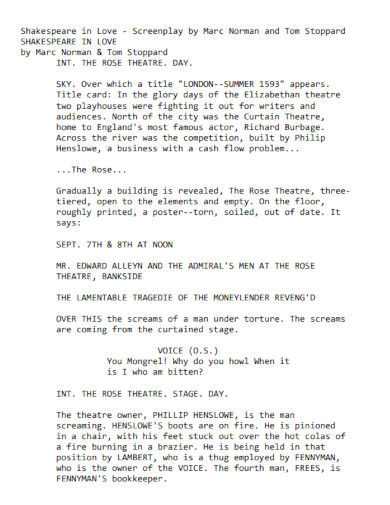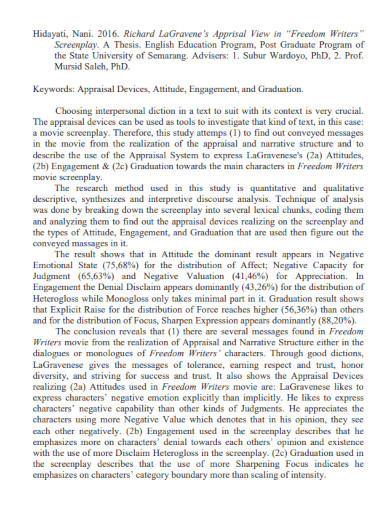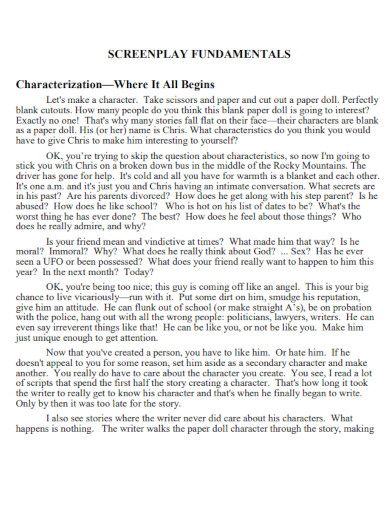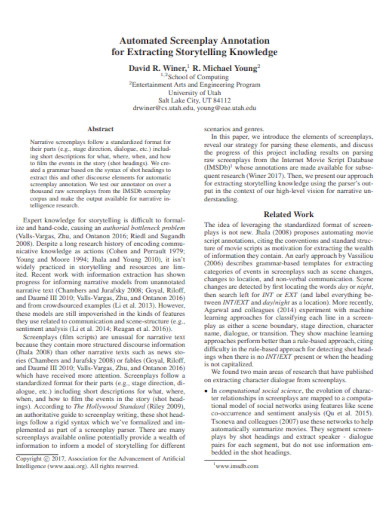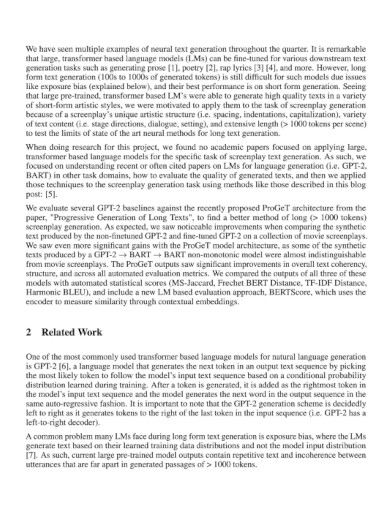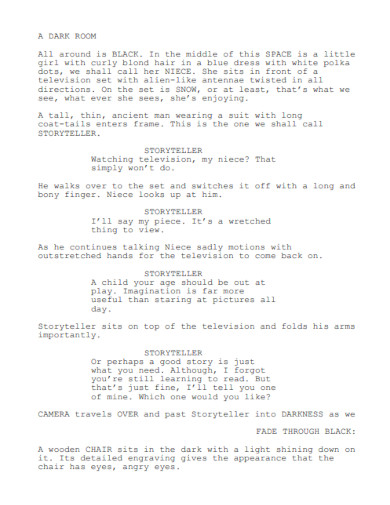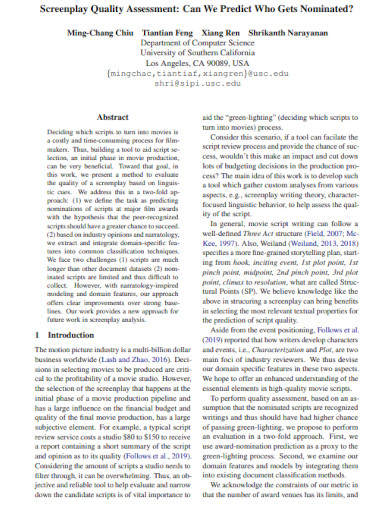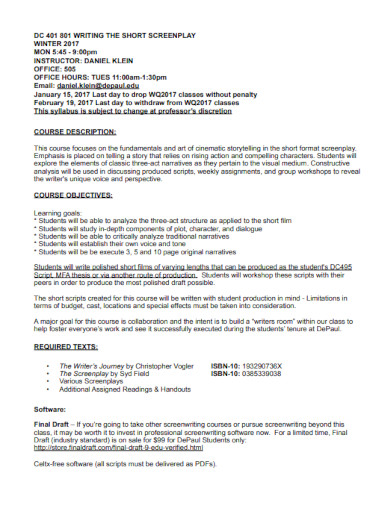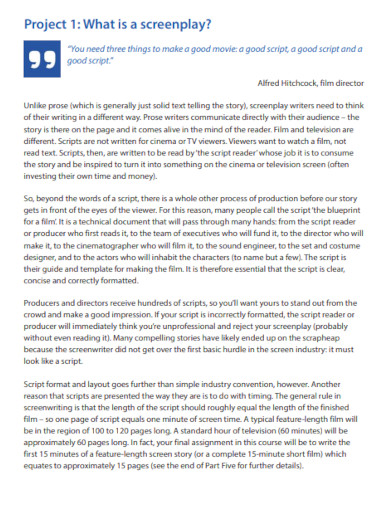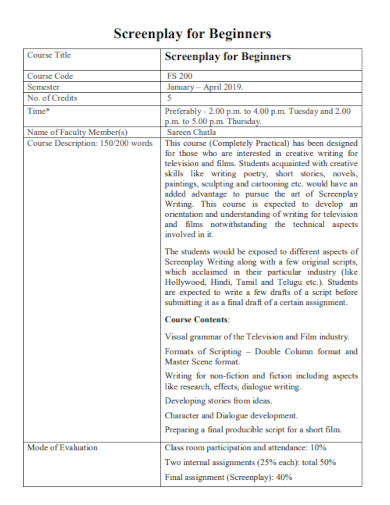35+ Screenplay Examples
From the big screen to the small screen, movies and TV shows have become an integral part of our culture, captivating audiences worldwide. Behind every captivating visual tale lies a screenplay – the blueprint that brings the story to life. In this article, we explore the world of screenplays, learn about their significance, and delve into the steps of crafting a compelling script. Whether you aspire to be a screenwriter or simply want to appreciate the intricacies of storytelling, let’s embark on this journey to explore screenplay templates and unlock the secrets of successful storytelling.
1. Screenplay Example
2. Beyond the Screenplay
3. General Screenplay
4. Screenplay PDF
5. Unproduced Screenplay
6. Dialogue Screenplay
7. Screenplay Writing
8. Adaptation Screenplay
9. Outstanding Screenplay
10. A Screenplay
11. Film Production Screenplay
12. Animation Screenplay
13. Screenplay Film
14. Screenplay Format Example
15. The Spec Screenplay
16. Screenplay Treatments
17. Script Writing for Screenplay
18. Screenplay Text Document
19. Screenplay Quality Metric
20. Screenplay and The Story
21. About Screenplay Characters
22. Best Screenplay
23. Preparing the Screenplay
24. An Original Screenplay
25. Stages of Screenplay
26. Shakespeare Screenplay
27. Writers Screenplay
28. Screenplay Form
29. Screenplay Fundamentals
30. Automated Screenplay Annotation
31. High Quality Screenplay
32. Screenplay The Storyteller
33. Screenplay Quality Assessment
34. Short Screenplay
35. Screenplay Project
36. Screenplay for Beginners
What is a Screenplay?
A screenplay is a written document that serves as the foundation for a movie, television show, or any other visual medium. It presents the story through scenes, dialogue, and action, providing a roadmap for directors, actors, and other crew members to create the final production. Screenplays come in two main types: an Adapted Screenplay outlines the adaptation of an existing work, like a novel or play, into a visual narrative, while an Original Screenplay is a wholly new and unique creation.
How to Craft a Screenplay
Screenplays are the backbone of every captivating movie and TV show. They serve as the blueprint that brings stories to life, guiding directors, actors, and crew members in creating memorable cinematic experiences. Whether you aspire to be a screenwriter or want to appreciate the magic of storytelling, this step-by-step guide will take you on a journey through the world of screenplays, with examples that showcase the art of visual storytelling at its finest. Let’s unravel the secrets of crafting compelling scripts together!
Step 1: Preparing for Your Story
Every great screenplay starts with a solid foundation. Begin by brainstorming your ideas and concepts for the story you want to tell. Consider the genre, themes, and the emotional journey you want your audience to experience. Creating an Outline for your screenplay can help organize your thoughts and structure the plot effectively.
Step 2: Developing Compelling Characters
Memorable characters are the heart of any successful screenplay. Give your characters depth, desires, and conflicts to engage the audience emotionally. Use Dramatic Irony to create tension by allowing the audience to possess information that the characters do not.
Step 3: Writing the Script
Now it’s time to put pen to paper, or rather, fingers to keyboard. Begin by formatting your script correctly, adhering to industry standards. You can find various Script Outline Examples to follow as templates. Craft your scenes, write authentic dialogues, and use action lines to describe the visuals and character movements.
Step 4: Refining and Reviewing
Once you have a complete draft, take the time to review and revise your screenplay. Seek feedback from peers, fellow writers, or professionals in the industry. Revise and polish your work until it reaches its full potential.
FAQs
1. What’s the difference between a screenplay and a script?
While the terms are often used interchangeably, a screenplay specifically refers to the written document that serves as the blueprint for a visual production, while a script can encompass a broader range of written works, including plays and teleplays.
2. Where can I find screenplay examples for reference?
You can find numerous Writing Examples in PDF or DOC format online, showcasing both complete screenplays and excerpts from famous movies and TV shows.
3. How do I write a screenplay for a short film?
For short films, you can find Short Script Writing Examples in PDF online, which will provide you with a concise format and structure suitable for shorter narratives.
Screenplays are a fundamental aspect of filmmaking, shaping stories that resonate with audiences across the world. By understanding the process of crafting a screenplay and exploring various screenplay examples, you can unravel the magic behind the captivating movies and shows that enrich our culture. So, whether you’re an aspiring screenwriter or an avid movie enthusiast, go ahead and start penning your own unforgettable stories!


